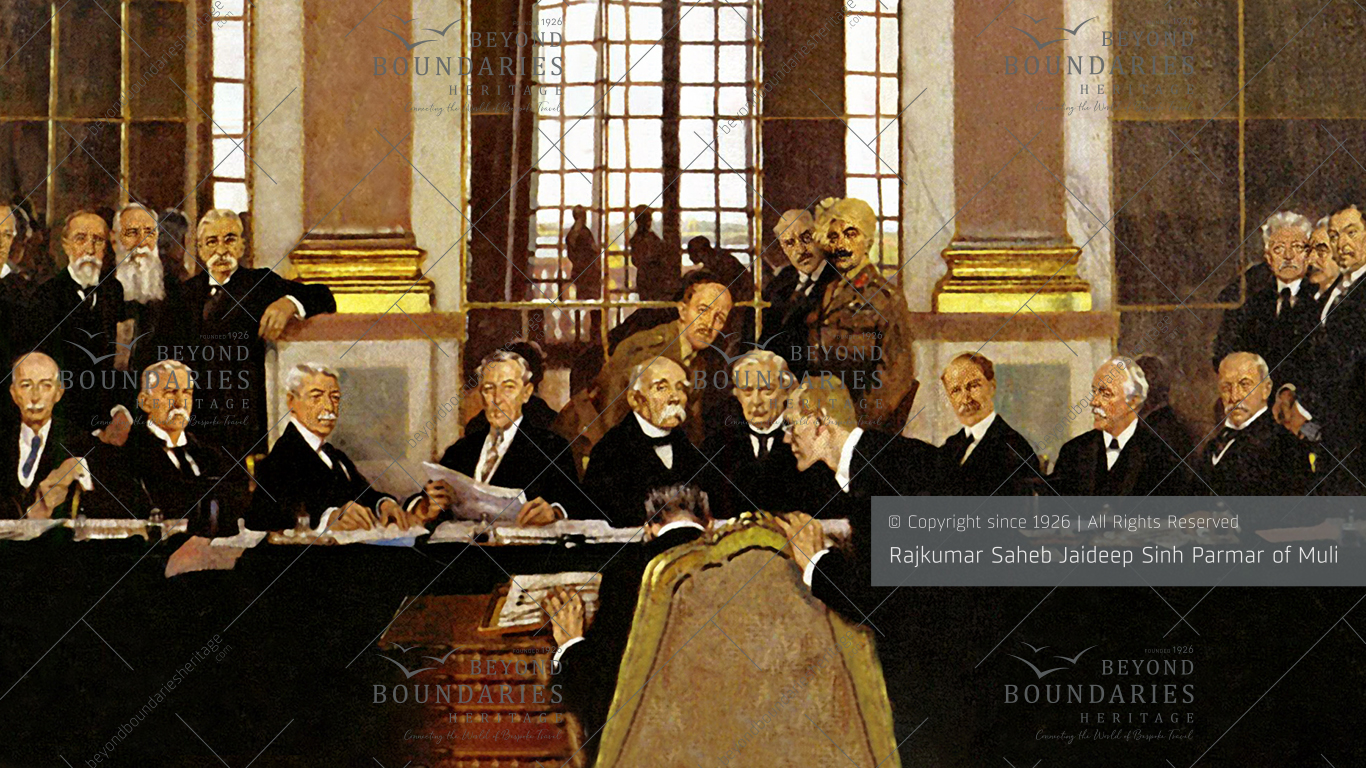H.H. MAHARAJA GANGA SINGHJI was born on the auspicious day of Vijayadashami in 1880 to H.H. Maharani Chandravati Singhji and H.H. Maharaja Lal Singhji of Bikaner. He hailed from princely state of Bikaner and was brother to Dungar Singh, whom he succeeded in 1887 at age 7. He received his early education privately at The Mayo College, Ajmer and he was tutored by Sir Brian Egerton, who also provided him administrative training. Reigned under a Council of Regency until he came of age and was invested with full ruling powers in 1898. For military training, he was sent to Deoli in 1898 and attached to the 42nd Deoli Regiment, which had the reputation of being one of the finest regiments in India under the command of Lt. Col. Bell. He served in China during the Boxer Rebellion (1900).
During the First World War, he commanded the Bikaner Camel Corps, which served in France, Egypt and Palestine. As a ruler, he established a Chief Court in Bikaner, presided over by a Chief Judge who was assisted by two judges. Bikaner was the first State in Rajasthan to take such a step. He announced the establishment of a Representative Assembly in 1913. He later established a High Court with a Chief Justice and two sub-judges by an edict in 1922. Maharaja Ganga Singhji was the first prince in Rajputana to grant full charter of powers to a high court. A life insurance and endowment assurance scheme were introduced for the benefit of the employees. Also, facilities of a saving bank were made available to the people. He was one of the first rulers to introduce through legislation a Sharda Act by which child marriages ended. He had a personal gun salute of 17-guns granted in 1918 and a permanent official gun salute of 19-guns granted in 1921. He represented India at the First World War - Imperial War Conference 1917, 1919, 1922 & 1930, the Imperial War Cabinet and the Paris Peace Conference 1919 (signed the TREATY OF VERSAILLES on behalf of India, 28th June 1919). He was the Chancellor of the Indian Chamber of Princes from 1921-26 and he also represented India at League of Nations in 1924 & 1930. He was the Indian States representative at Round Table Conferences of 1930 & 1931. He founded the Badge of Honour (Later the Order of the Star of Honour) in 1937 and also visited the War front in Second World War. He was the Pro-Chancellor of Benares Hindu University from 1922-1929 and the Chancellor from 1929-1943. He was a famous Indian freemason in his time who died in 1943 after a reign of 56 years, aged 62, and was succeeded by his eldest son H.H Maharaja Sadul Singhji of Bikaner.
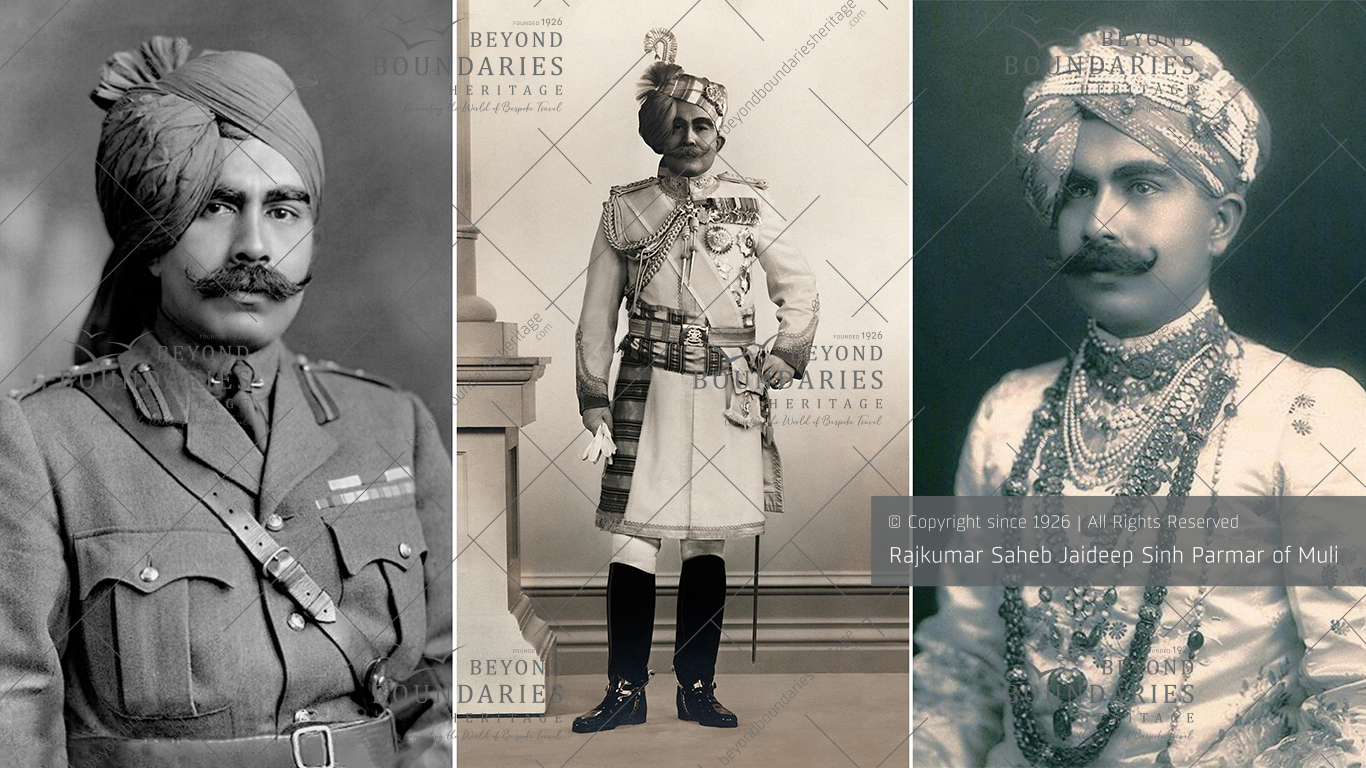 +Lallgarh Palace, Bikaner
+Lallgarh Palace, Bikaner
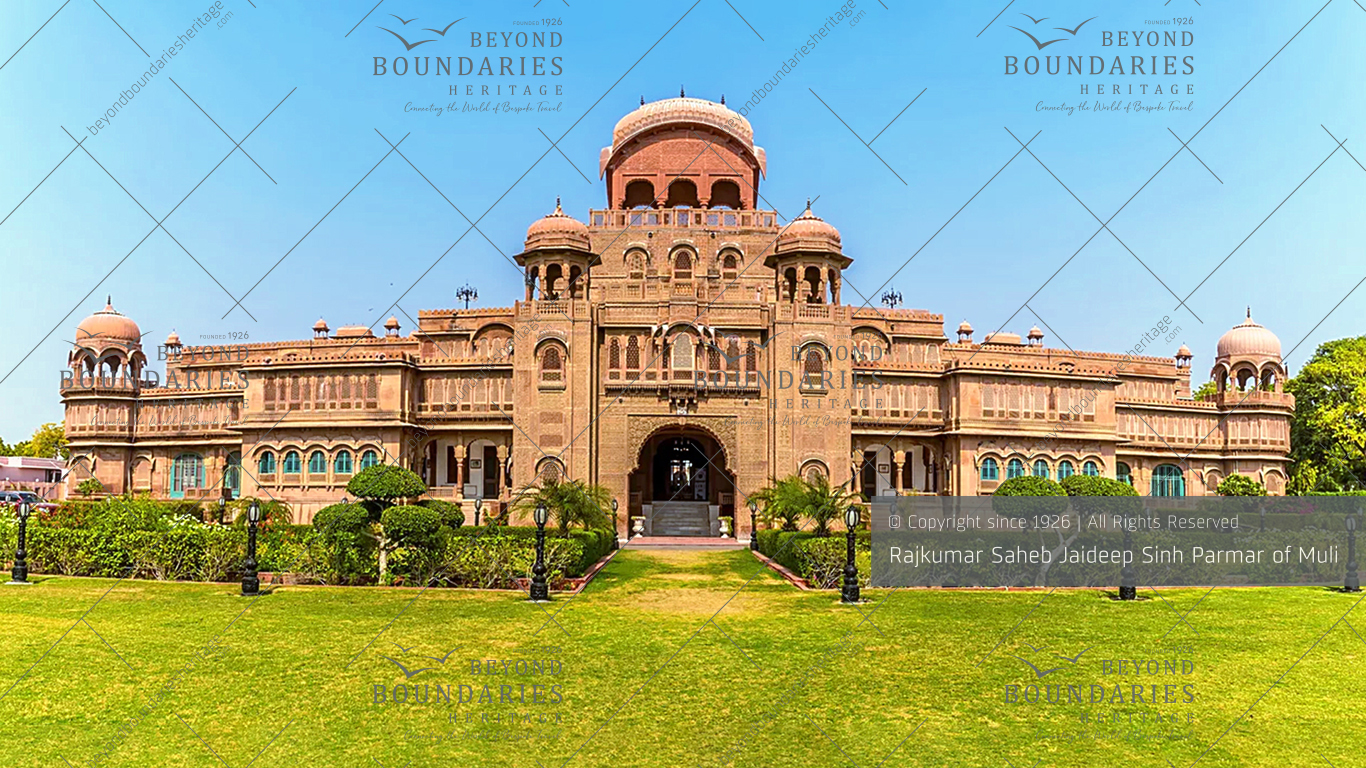 +H.H. Maharaja Ganga Singhji of Bikaner leading the Bikaner Camel Corp
+H.H. Maharaja Ganga Singhji of Bikaner leading the Bikaner Camel Corp
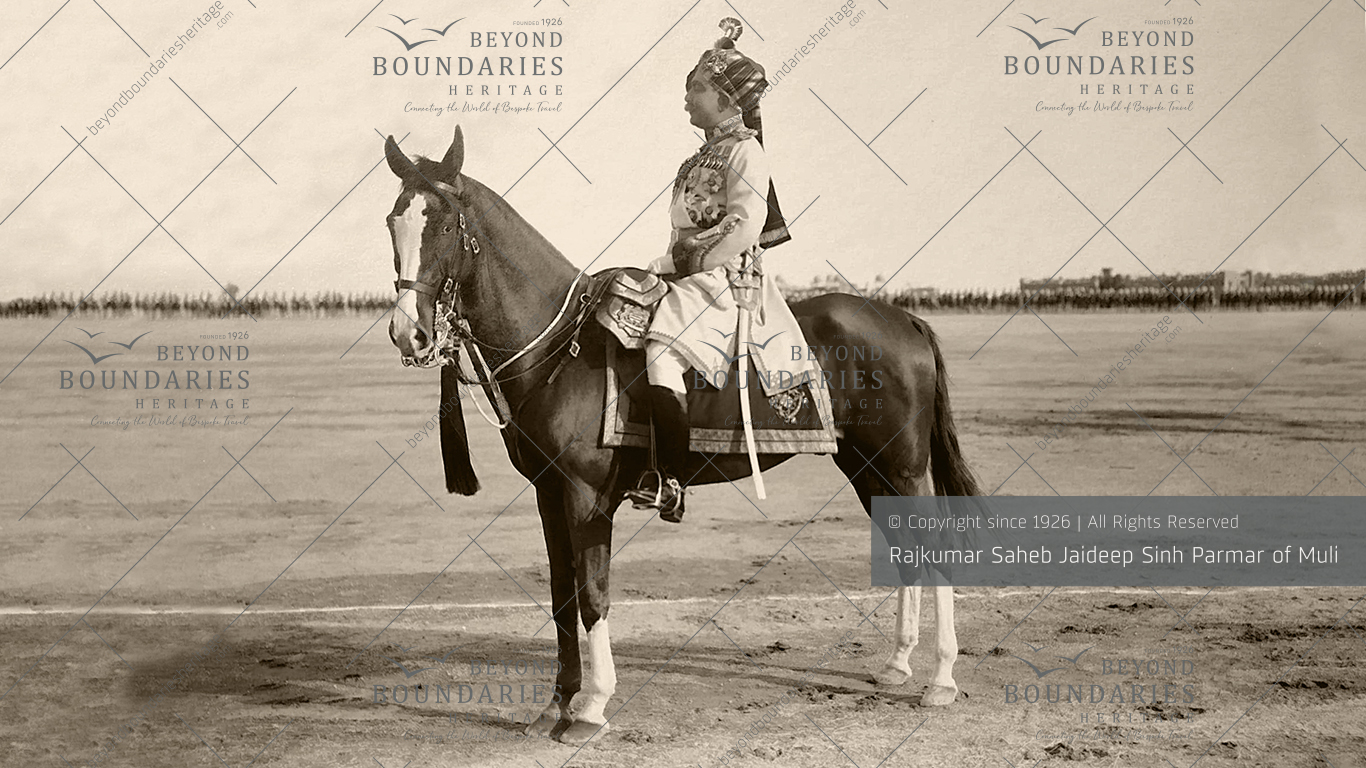 +Bikaner state currency
+Bikaner state currency
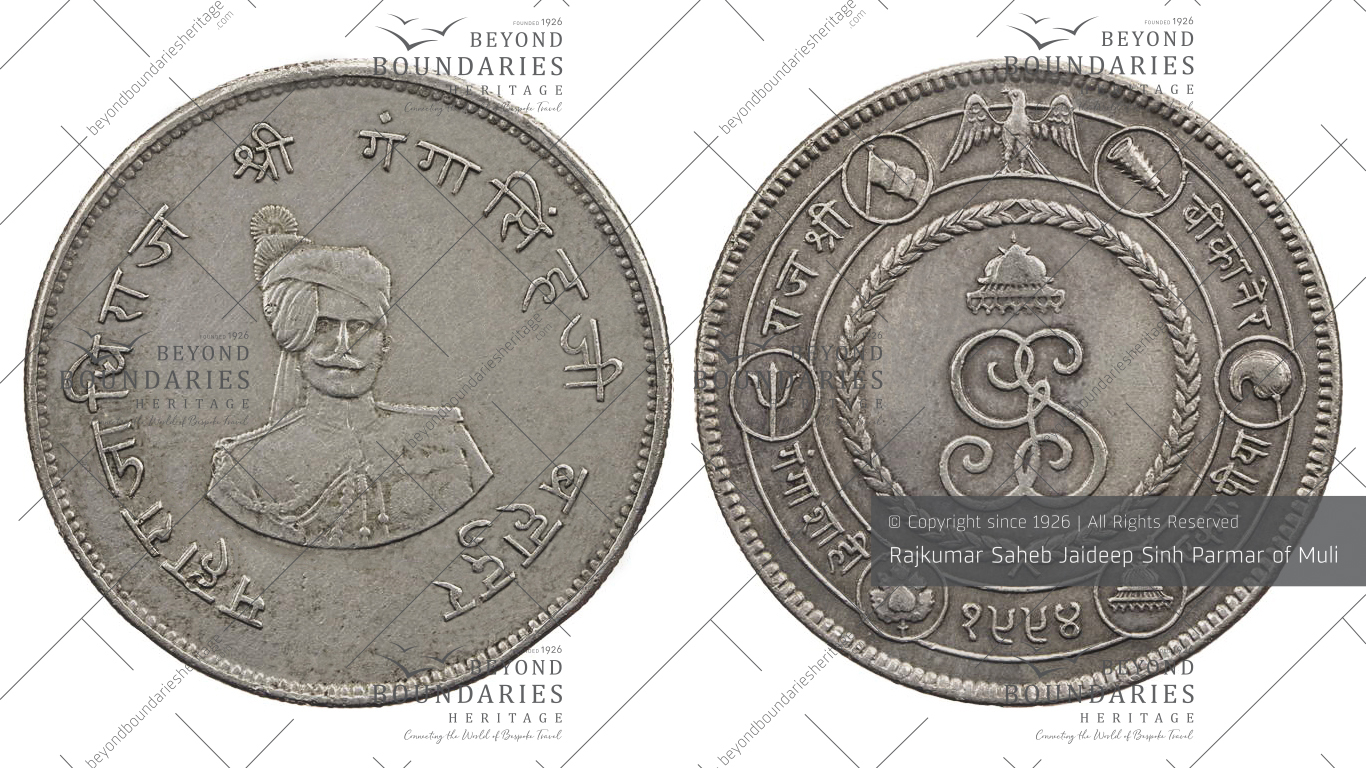 +Bikaner state champion Polo team & Three generation of the Bikaner royal family
+Bikaner state champion Polo team & Three generation of the Bikaner royal family
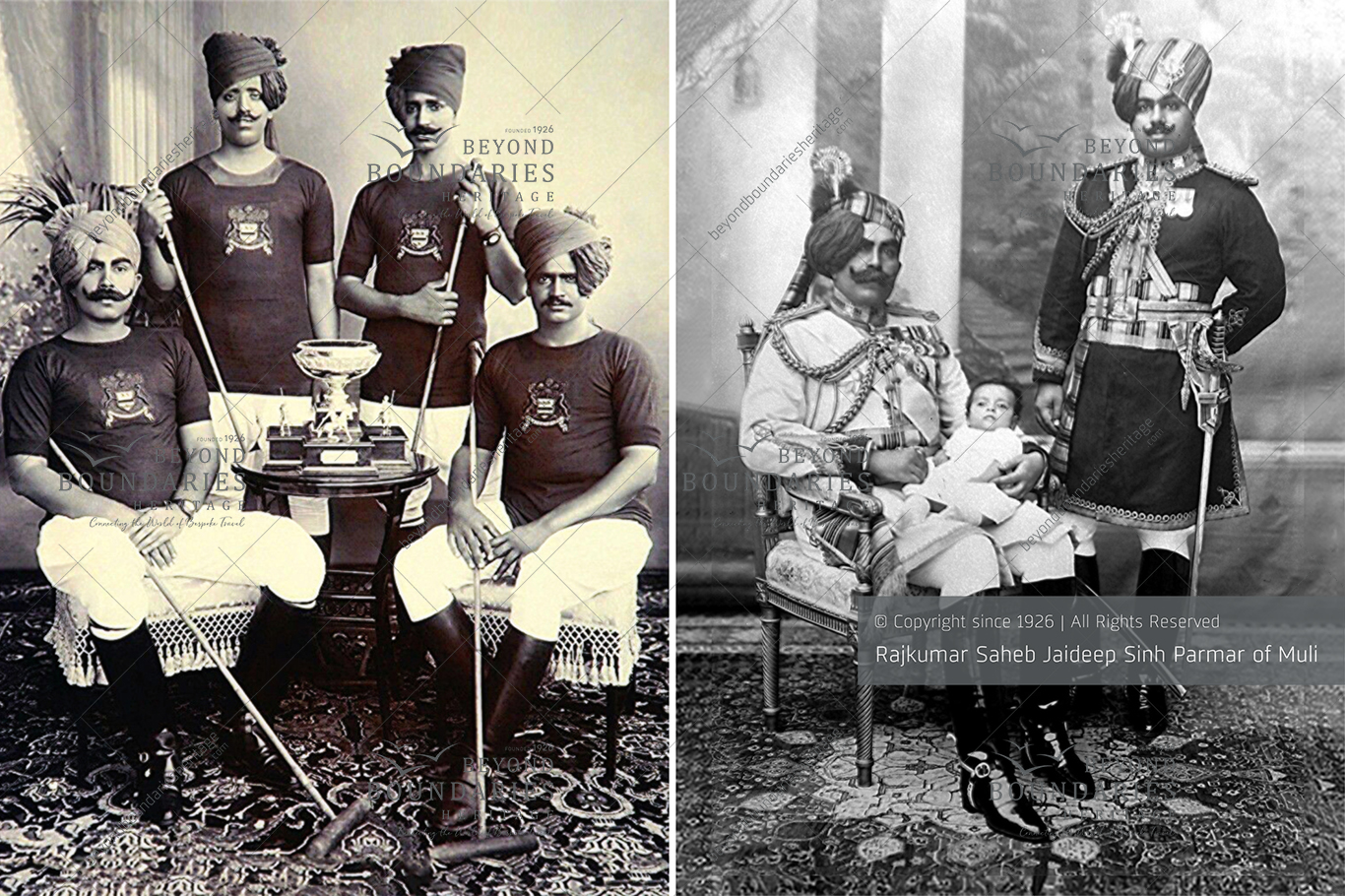 +The Imperial War cabinet during WW1 at 10 Downing street, London, 1917
+The Imperial War cabinet during WW1 at 10 Downing street, London, 1917
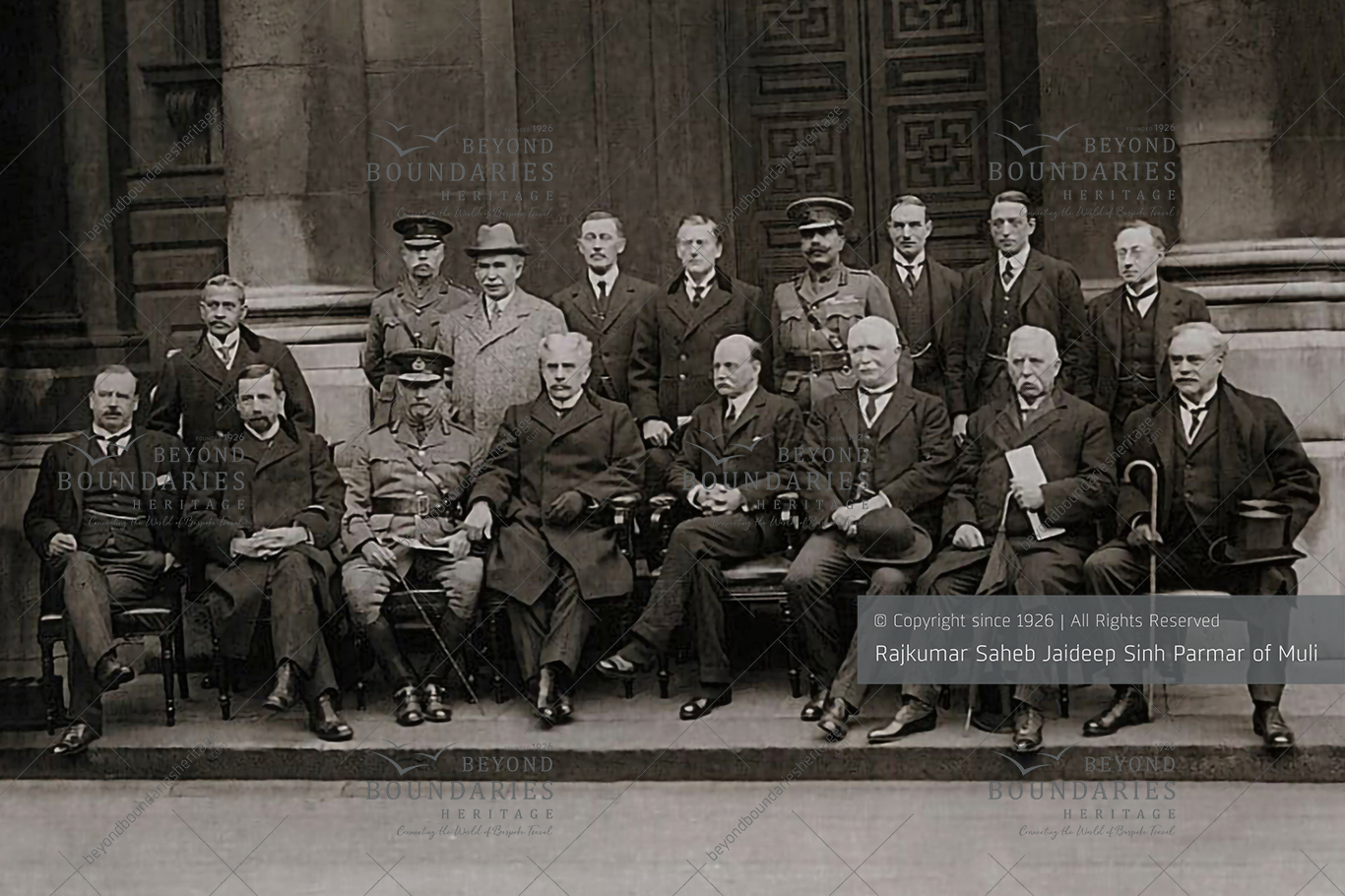 +H.H. Maharaja Ganga Singhji of Bikaner with King George V
+H.H. Maharaja Ganga Singhji of Bikaner with King George V
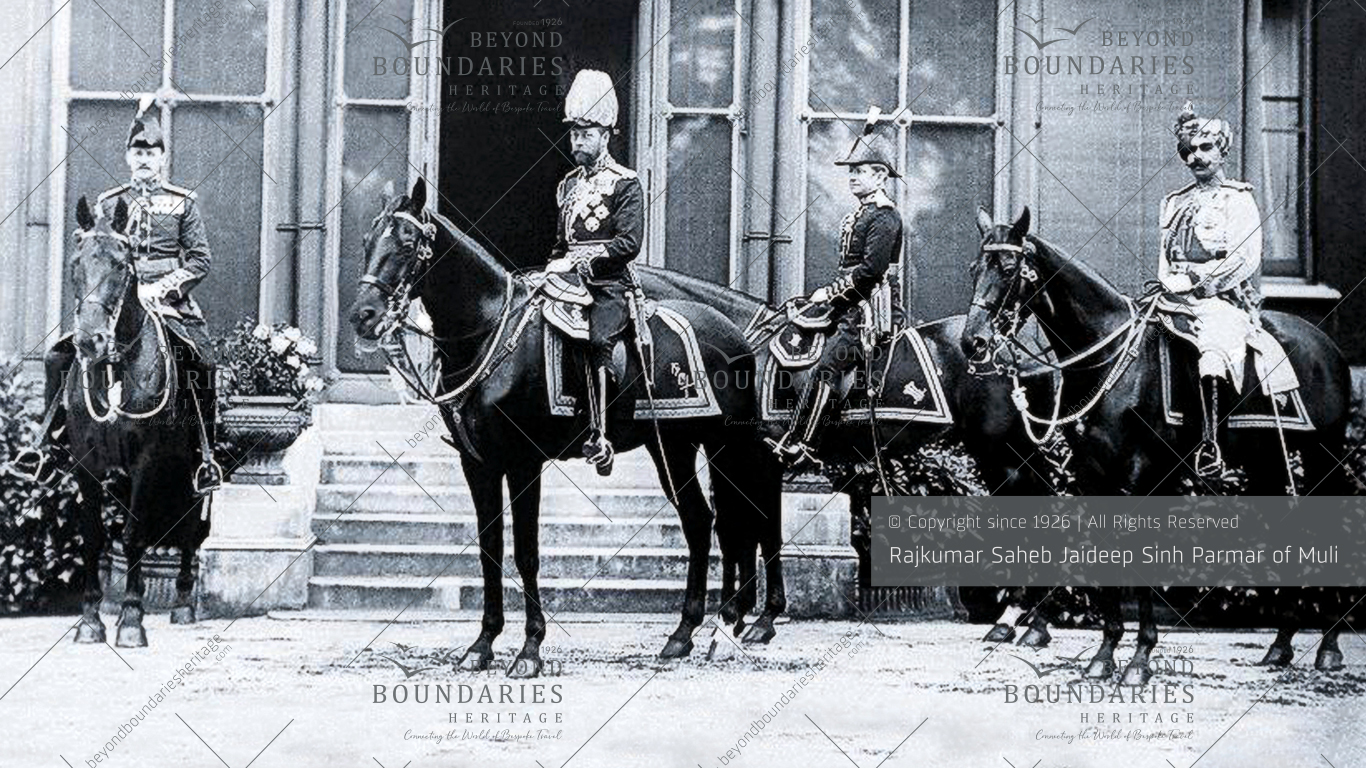 +Statesmen of WW1
+Statesmen of WW1
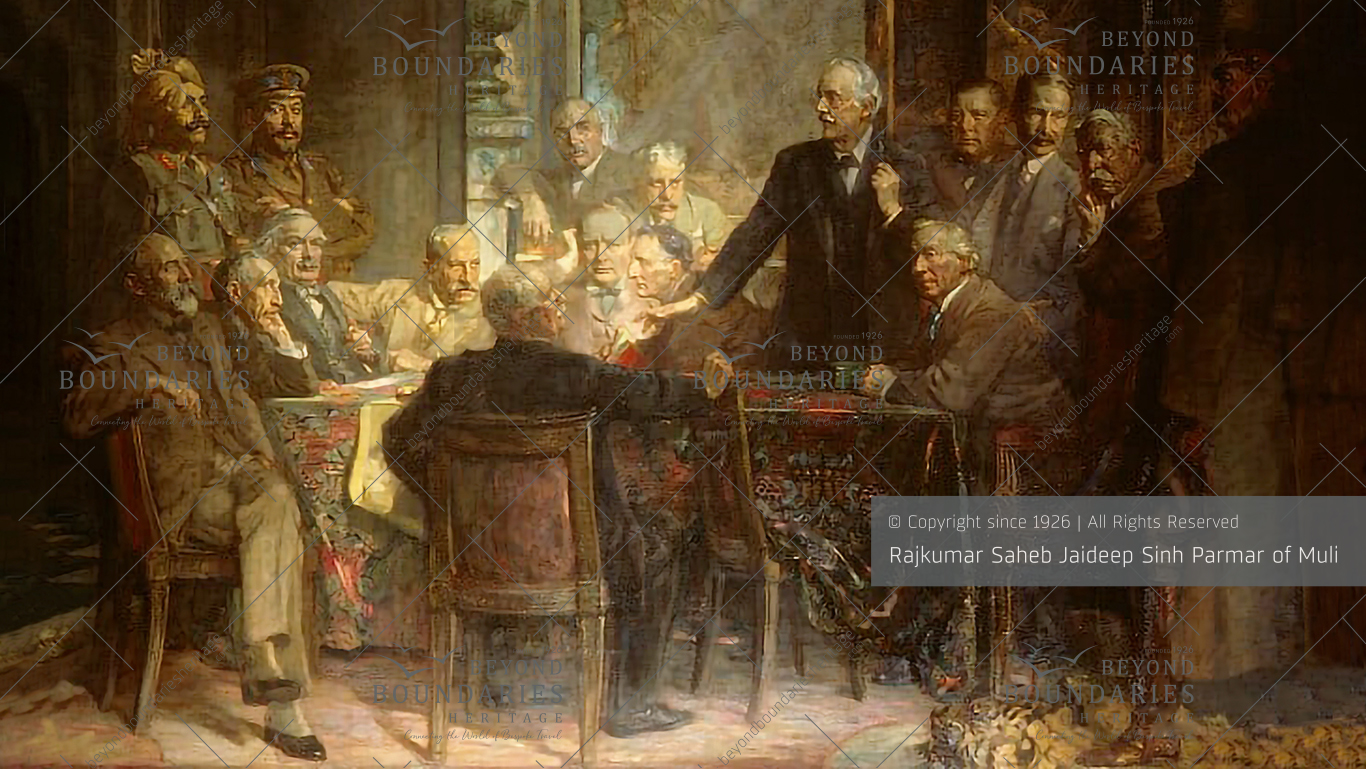 +H.H. Maharaja Ganga Singhji of Bikaner at Germany during WW1
+H.H. Maharaja Ganga Singhji of Bikaner at Germany during WW1
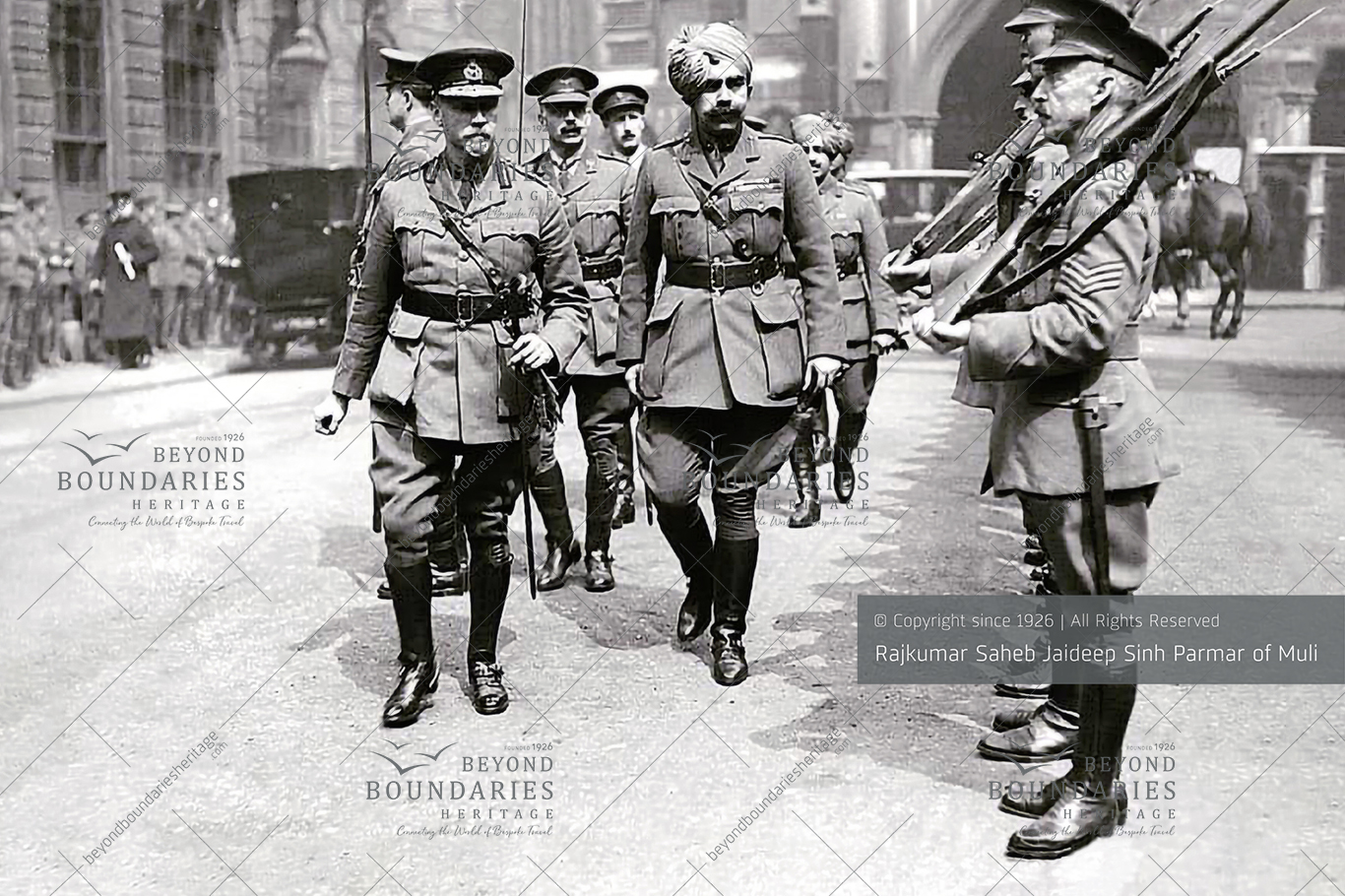 +DH-9 DE Haviland Plane presented to H.H. Maharaja Ganga Singhji of Bikaner for the services rendered by the Bikaner Camel Corp during WW1
+DH-9 DE Haviland Plane presented to H.H. Maharaja Ganga Singhji of Bikaner for the services rendered by the Bikaner Camel Corp during WW1
 +Signing of the Treaty of Versailles after WW1, 28th June 1919
+Signing of the Treaty of Versailles after WW1, 28th June 1919
